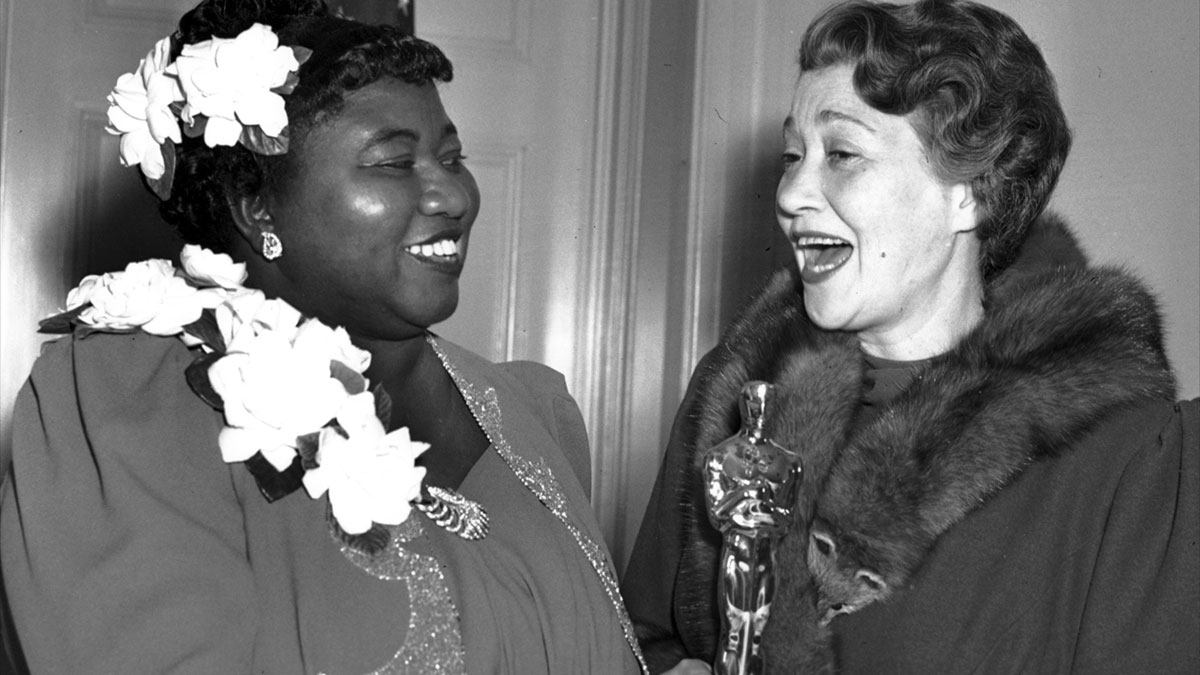
Feb. 29, 1940

Hattie McDaniel became the first Black American to win an Oscar, playing the role of the servant Mammy in the film “Gone With the Wind.”
The daughter of a gospel singer and a veteran of the Union Army, she spent a lifetime fighting racism in her long career, which included singing the blues and performing on the radio. After the stock market crash in 1929, she could only find work cleaning bathrooms at a Milwaukee-area club. The owner finally agreed to let her on stage, and she became a regular performer.
McDaniel went on to appear in more than 300 films, singing with Paul Robeson and others and performing with everyone from Jimmy Stewart to the Three Stooges.
Thinking she had little chance to get the part in “Gone With the Wind” because of her reputation as a comic actress, she showed up at the audition in an authentic maid’s uniform and won the role. She said she felt she understood the role because her own grandmother had worked on a plantation similar to Tara.
Despite her stellar performance, Georgia’s segregation laws barred her from going to the film’s premiere in Atlanta. When Clark Gable threatened to boycott, she convinced him to attend anyway. She did, however, attend the Hollywood screening of the film.
After being handed the Oscar, she told those gathered, “This is one of the happiest moments of my life, and I want to thank each one of you who had a part in selecting me for one of their awards, for your kindness. It has made me feel very, very humble; and I shall always hold it as a beacon for anything that I may be able to do in the future. I sincerely hope I shall always be a credit to my race and to the motion picture industry. My heart is too full to tell you just how I feel, and may I say thank you and God bless you.”
When some criticized her for accepting that role and others like it, she replied, “Why should I complain about making $700 a week playing a maid? If I didn’t, I’d be making $7 a week being one.”
During World War II, she chaired the Negro Division of the Hollywood Victory Committee, performing with actress Bette Davis for the troops. When white residents of Los Angeles sought to have Black families evicted through race restrictive covenants, she helped fight the matter in court, and the families won.
In the years that followed, McDaniel became the first Black actor to star in her own radio show with the comedy series, “Beulah,” and replaced Ethel Waters in the TV version of the show. After filming a handful of episodes, she had to quit because she had been diagnosed with breast cancer.
Racism kept her from being buried in the then-whites-only Hollywood Forever Cemetery. (Cemetery officials later put up a monument honoring her.) Thousands attended her funeral service, and two stars honor her on the Hollywood Walk of Fame (one for radio and one for film).
In 2006, the U.S. Postal Service featured her on a stamp, and four years later, when Mo’Nique received an Oscar for her performance in “Precious,” she appeared in a blue dress and gardenias in her hair, just as McDaniel had, and thanked the late star “for enduring all that she had to so that I would not have to.”

